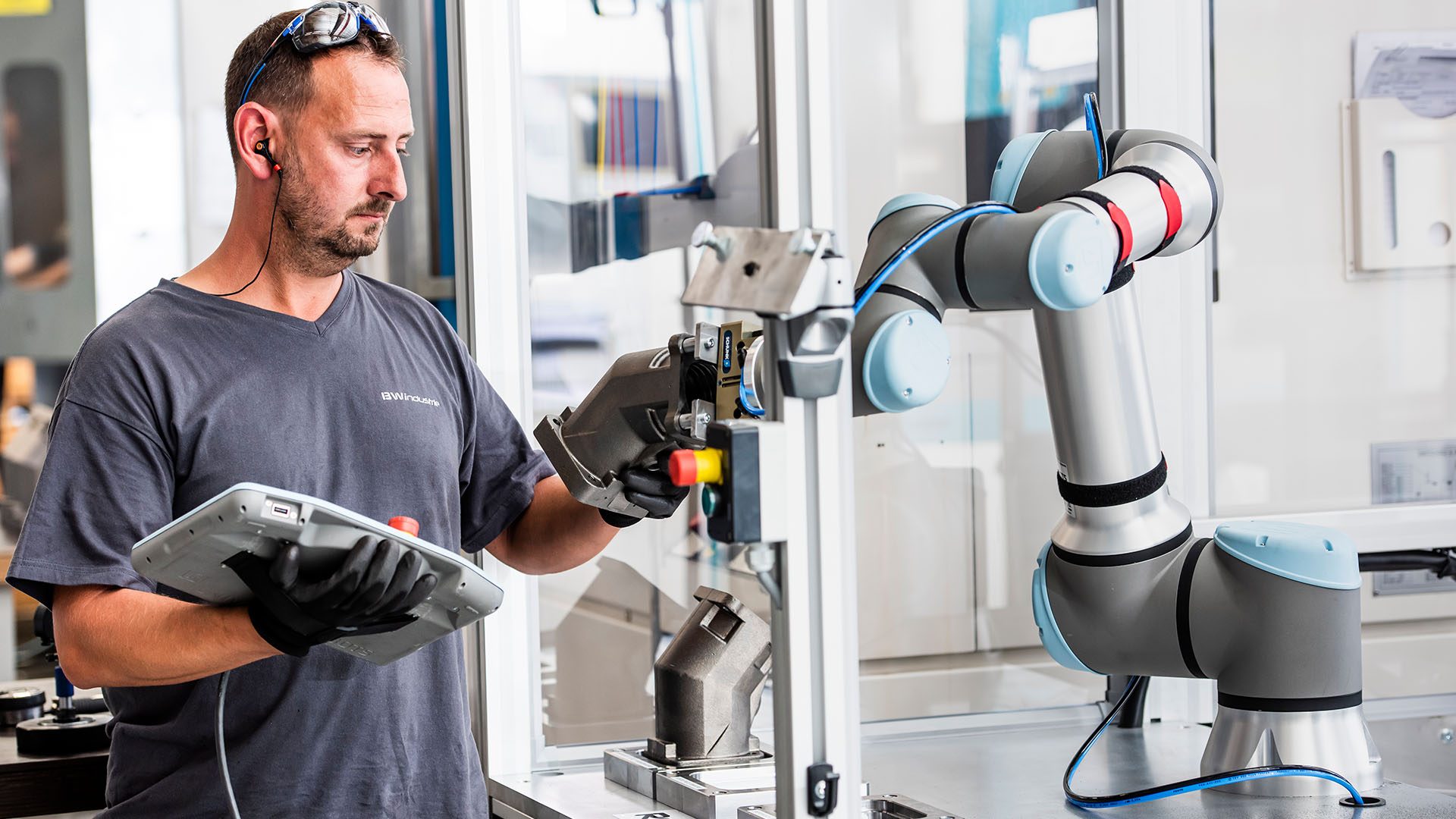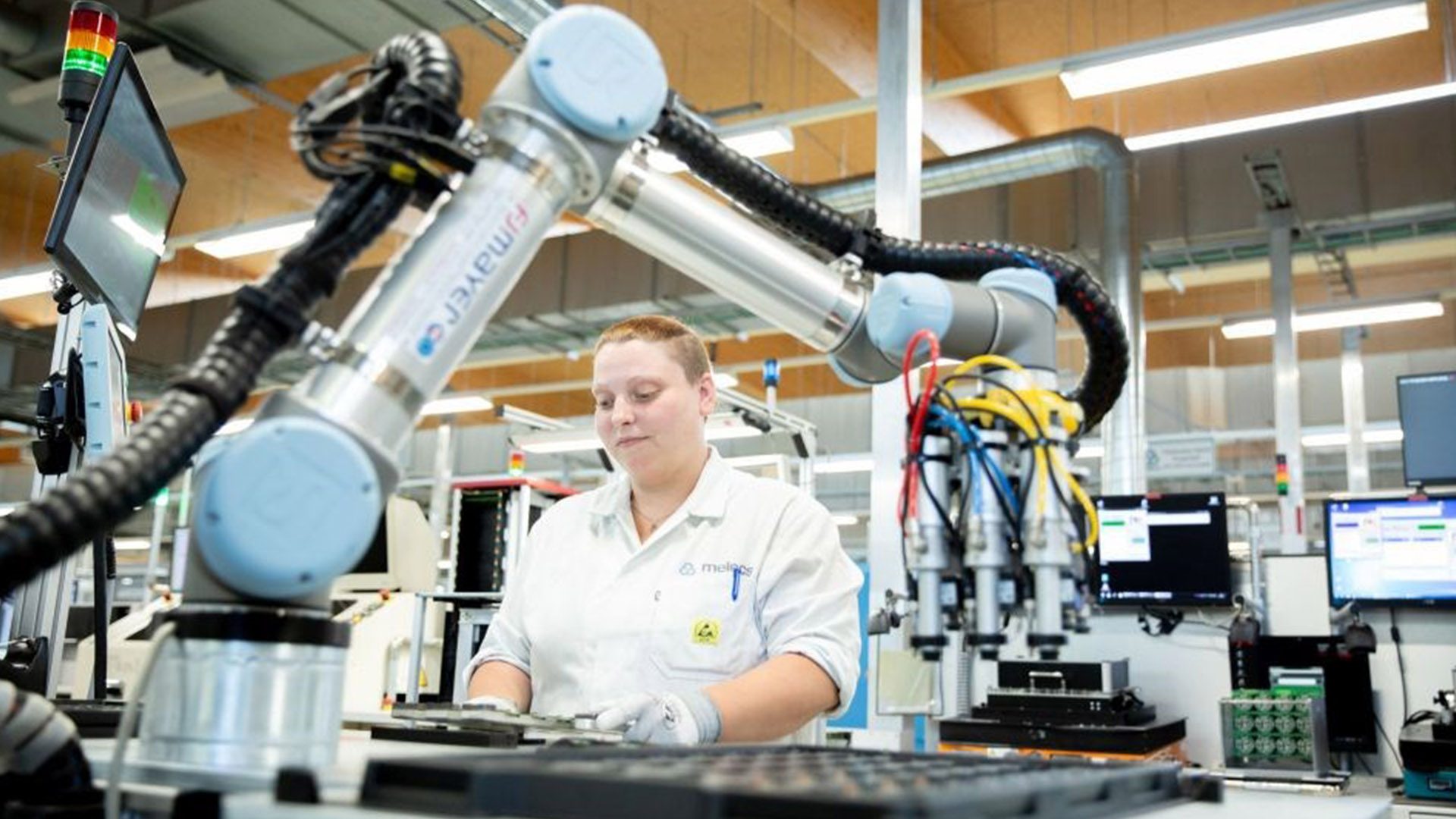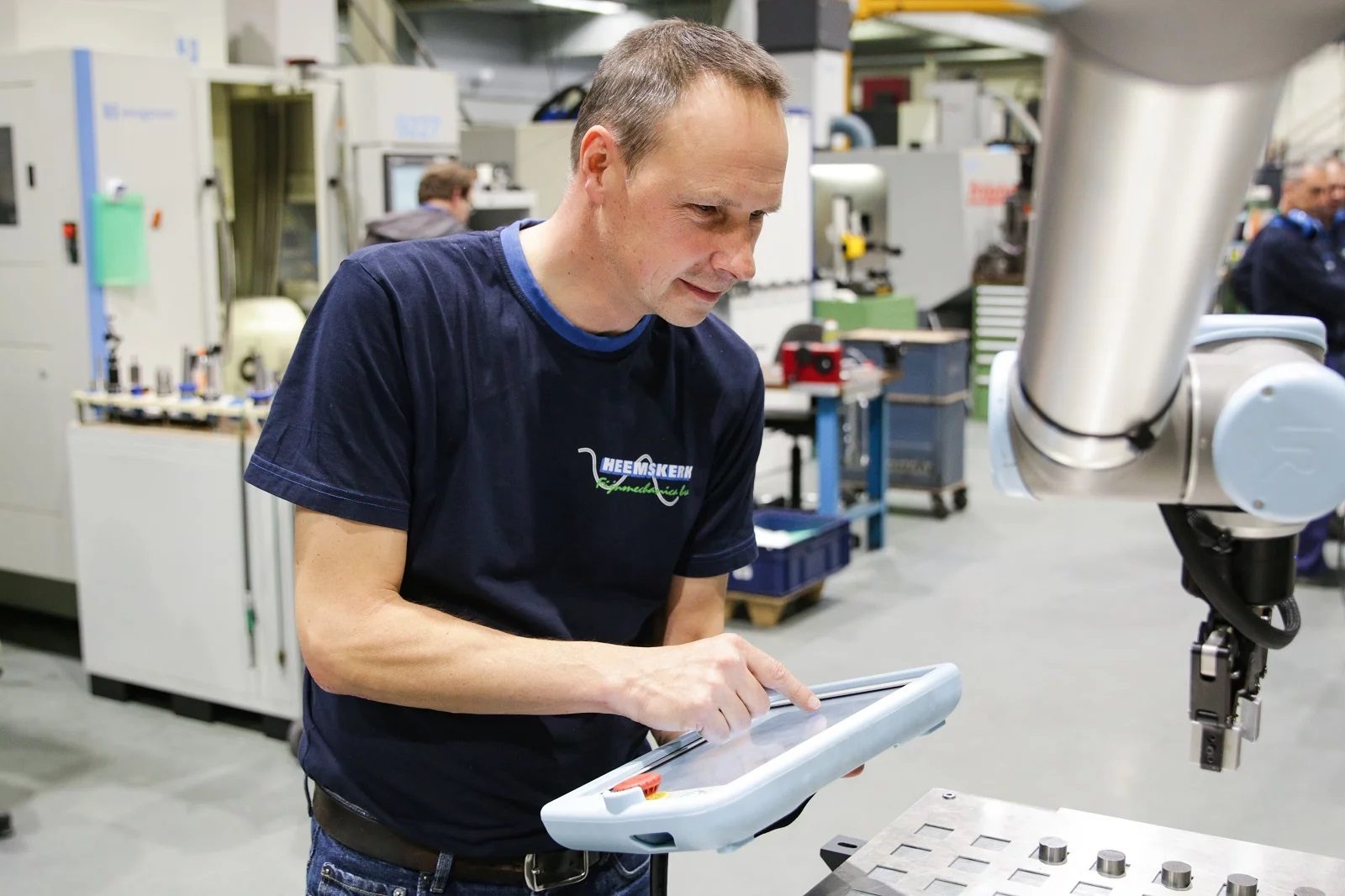Collaborative robots are increasingly being used in companies. Before cobot integration, however, many people are worried that cobots will take their jobs. A closer look reveals that automation with cobots enhances human work. Under certain circumstances, new jobs are even created.
The number of industrial robots installed in Switzerland has risen sharply in the last decade. Nevertheless, at around 160 robots per 10,000 employees, the robot density is only half as high as in Germany. Due to this development, many people fear that their jobs are at risk. However, if we look at the reality, this concern is dispelled.
Work is enhanced by cobots
A survey by the Institute for Employment Research (IAB) concludes that the integration of new technologies does not necessarily lead to job losses. The authors emphasize that the focus is shifting. As the degree of automation increases, jobs with low added value and monotonous activities are declining, while new jobs with more demanding tasks are being created.
The institute's experts go on to explain that these developments have always existed. Since the 1970s, the degree of automation has steadily increased and yet no jobs have been lost. Jobs that were lost have been rebuilt elsewhere. So we can see that an increase in robot density is changing work and creating new jobs.
This is also backed up by labor market figures from the USA from the International Federation of Robotics (IFR): The number of installed robot units had increased by 65% to 2.4 million between 2013 and 2018, while the number of jobs in the automotive industry had grown by 22%. As the automotive industry is the most automated sector, this development is all the more remarkable.
Collaborative robots make work easier for employees by helping them. They are therefore a supplement to human work and do not replace it. Cobots take over unattractive and simple tasks. In this way, human labor can be reallocated to more attractive activities with higher added value.

Productivity is increased by robots
New jobs are also created by the increase in productivity in companies that automate their production or parts of it. With collaborative robots, you can make processes more efficient and produce more in the same amount of time. Cobots can work 24/7, helping companies to fully utilize their production capacities.
Another point is the savings that result from optimizing processes. As cobots work very precisely, reject rates are reduced and product quality is increased.
By combining increased efficiency and productivity, companies remain competitive and there is potential for growth. Small and medium-sized companies in particular have to assert themselves more strongly on the market than their larger competitors. This is why these factors are particularly important for these small and medium-sized companies. Thanks to their high profitability and ease of use, cobots are affordable even for SMEs.

The universities of Bayreuth and Aarhus demonstrated these advantages in a long-term study. Between 1990 and 2016, the study team interviewed 1,900 Spanish manufacturing companies every year on topics such as production costs and processes, prices and employment. The data clearly shows that companies that are driving forward the automation of their production are able to hire more employees, increase their throughput and reduce the proportion of wage costs while maintaining the same average wage. If companies do not use robots, the picture is the opposite. The researchers attributed this in part to competitive disadvantages due to a lack of automation.
But it is not just the company that benefits from increased productivity. Other companies along the value chain or associated services also benefit. This is because the higher output increases the demand for goods and services at these companies. Thanks to this effect, new jobs can also be created here in the long term.
Robots help with the shortage of skilled workers
Cobots help companies grow by counteracting the shortage of skilled workers. The shortage of skilled workers is also a problem in Switzerland. Especially in engineering, technical professions and pharmacy, the shortage of skilled workers remains high. The lack of qualified workers is seen by many companies as the greatest business risk. It is therefore an urgent problem for which solutions are desperately being sought.
Cobots can be a solution to the shortage of skilled workers in industry in particular. Collaborating robots help in electrical installation and assembly, plastics processing, machining technology, mechanical engineering and welding technology. Cobots take over many manual tasks that occur in these fields of work. These include, for example, dispensing, assembly processes, deburring and welding. Automation by collaborative robots relieves employees, who can then carry out more demanding tasks. These routine tasks in particular can be easily automated with cobots.
If the shortage of skilled workers in your company can be countered with cobots, then you will benefit in the long term and can continue to grow. In addition, existing jobs will be secured and new ones created.
A cobot continuously feeds a machine at Endutec
Robots bring production back to the domestic market
The consequences of the pandemic and national trade conflicts on supply chains have made it clear that it is more profitable for many companies to bring parts of the value chain back to the domestic market. It is becoming increasingly clear that the international integration of supply chains can represent a competitive disadvantage. In many cases, routes were blocked, transit came to a standstill and deliveries failed to materialize. These uncertainties can be reduced if upstream production steps are brought back to the domestic market.
Collaborative robots play a major role in this. They make production in high-wage countries profitable. It doesn't matter whether a cobot in Eastern Europe, Asia or Switzerland tests connectors or assembles components. In the end, it costs the manufacturer the same. Cobots help your company to shorten supply chains and thus secure your production. If production steps are relocated back, this also creates more jobs in Germany.
Cobots make you more flexible
You can make your production processes more flexible with collaborative robots from Universal Robots. They can be quickly reprogrammed for new processes and easily equipped with different grippers or sensors. Cobots can perform new tasks within a very short time. This is why some companies were able to spontaneously change their production during the coronavirus crisis. They were then able to quickly produce masks or ventilators instead of machine components.
With collaborative robots, companies can react flexibly to new requirements and changing markets.
